Digest of EU Project Pravo-Justice. Issue No. 10 of 4 October

Here is the information digest of EU Project Pravo-Justice featuring the events from 3 September to 3 October 2024.
Supporting the process of European integration in the justice sector
- On 12 September, a coalition of CSOs presented to the European Commission the Shadow Report to Chapter 23 ‘Justice and Fundamental Rights’ of the European Commission’s 2023 Report on Ukraine.
Oksana Tsymbrivska, Team Leader of EU Project Pravo-Justice, noted that this is the first time the Shadow Report on Chapter 23 has been published.
“The Shadow Report demonstrates the viewpoint of Ukrainian civil society, lawyers and experts actively involved in the reform process. It covers an assessment of the progress of reforms, identifies shortcomings and gaps to be addressed, and, most importantly, provides recommendations for further action,” said Oksana Tsymbrivska.
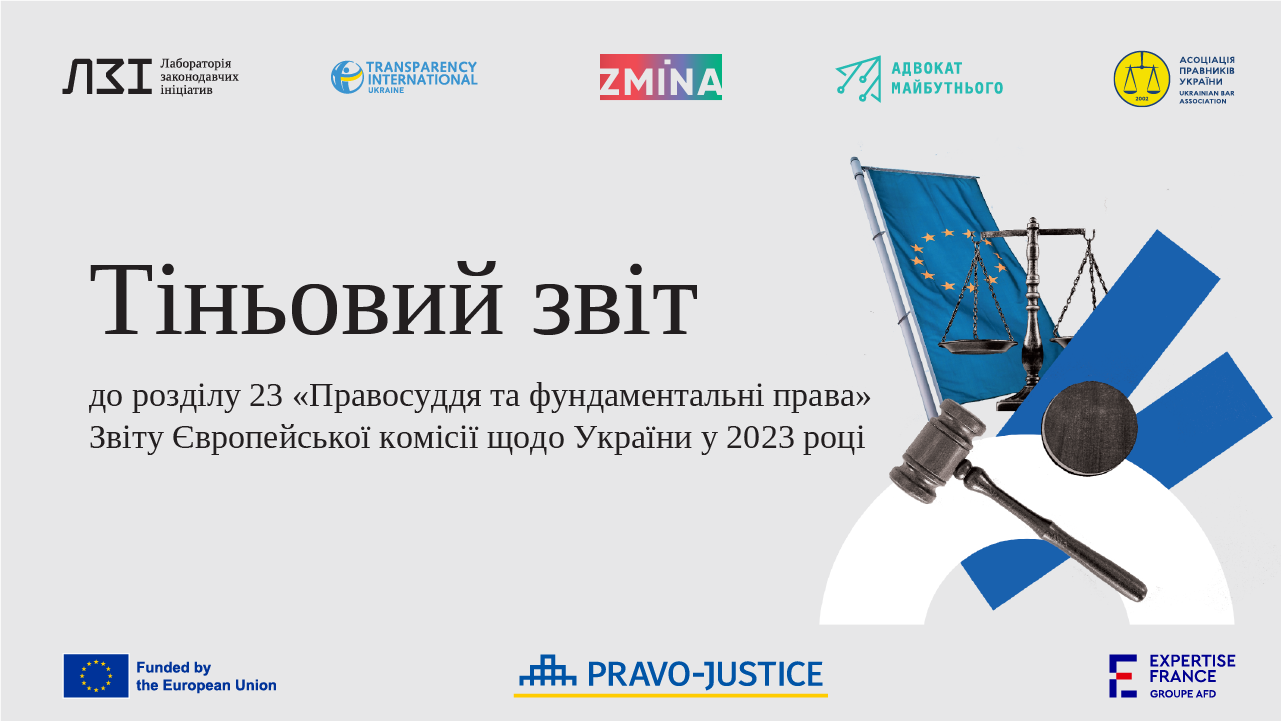
- On 17-19 September, EU-Ukraine bilateral talks took place in Brussels (the Kingdom of Belgium) within the framework of the screening the compliance of Ukrainian legislation with EU law under negotiating Chapter 23.
The Ukrainian delegation, composed of representatives of central executive authorities, state authorities, and Members of Parliament, was headed by Olha Stefanishyna, Vice Prime Minister for European and Euro-Atlantic Integration of Ukraine and Minister of Justice of Ukraine.
Preparations for the negotiations lasted for three months. In this period, EU Project Pravo-Justice, together with other international technical assistance projects, supported three rounds of mock sessions for Ukrainian officials conducted by the best experts experienced in preparing for and participating in the negotiation process. The sessions covered EU law and policies in the areas of independent and effective judiciary, prevention and fight against corruption, fundamental rights and freedoms.
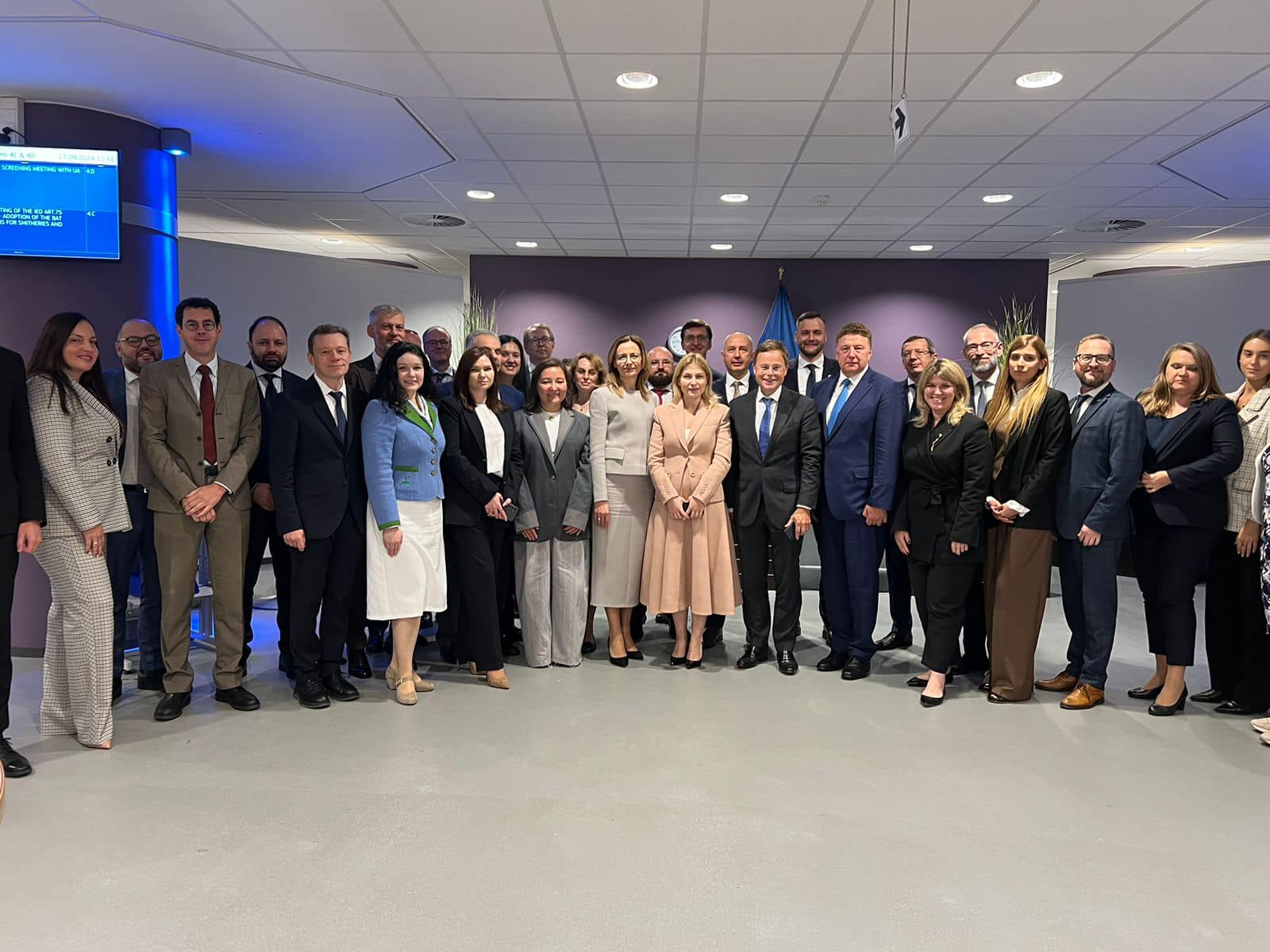
- EU Project Pravo-Justice together with the partners initiated the first round of mock bilateral meetings with the European Commission on negotiating Chapter 24 “Justice. Freedom. Security”.
For three days, representatives of the justice system, with the help of national and international experts, prepared for bilateral meetings with the European Commission, working, in particular, on improving the content and format of presentations.
It should be noted that bilateral meetings between the Ukrainian side and the European Commission will take place in Brussels on 23-25 October.
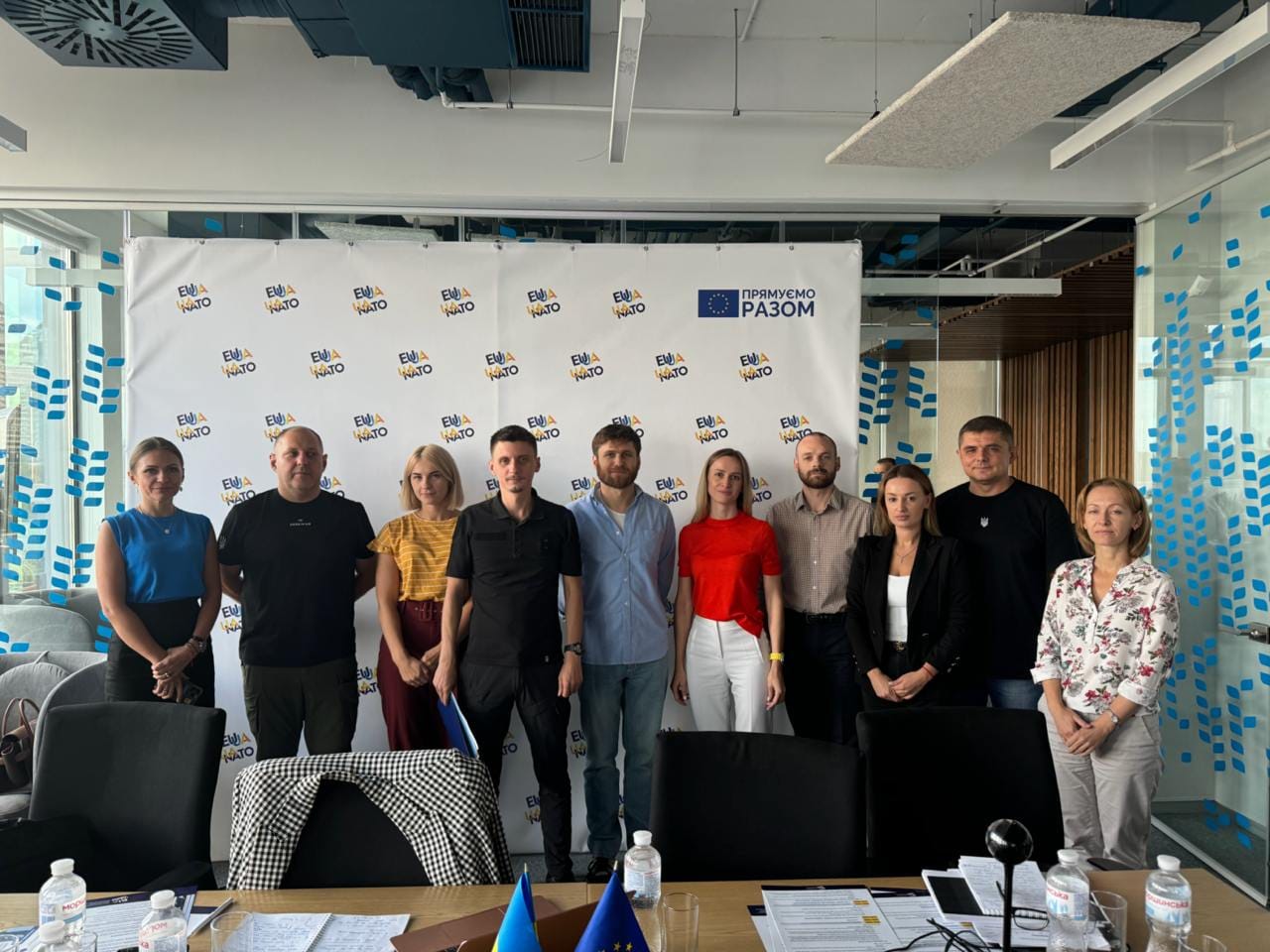
- At the initiative of EU Project Pravo-Justice, the Fifth Administrative Court of Appeal organised a roundtable discussion “Administrative Procedure in the Focus of European Integration: Perspectives of Administrative Courts, Experts and Stakeholders”.
Project experts participated in the event. In particular, Virgilijus Valančius, Senior International Expert of EU Project Pravo-Justice, noted that in the course of EU accession negotiations, the European Commission will closely monitor not only the adoption of new legislation in Ukraine, but also its practical implementation, including LAP.
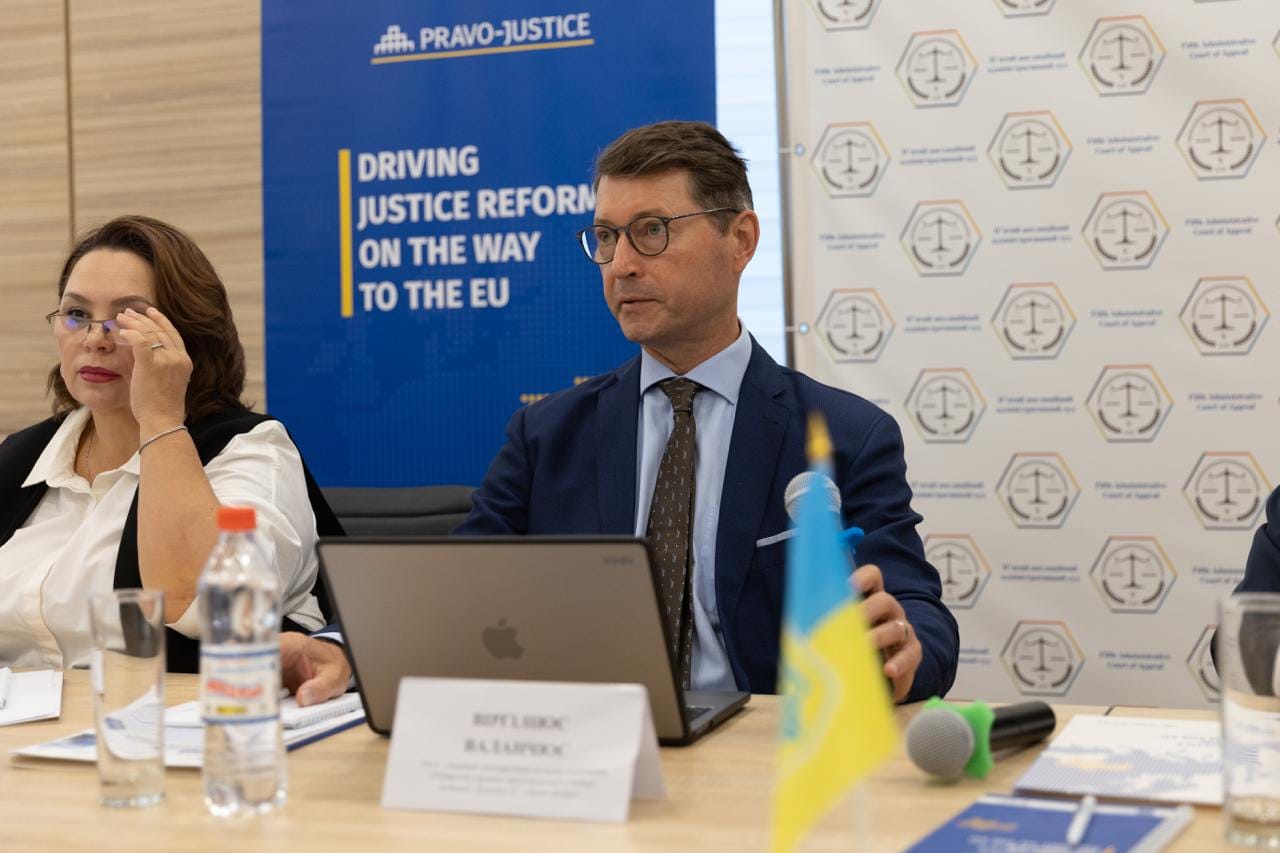
- Experts of EU Project Pravo-Justice participated in the VIII Kharkiv International Legal Forum.
In particular, Viacheslav Tolkovanov, Key Expert on EU Integration of EU Project Pravo-Justice, spoke at the panel “Ukraine-EU: Challenges of the Negotiation Process”. He emphasised that human resources involved in the execution of the European integration policy and the implementation of EU law into national legislation should be strengthened both in terms of quantity and quality. Therefore, it is reasonable to revisit developing and implementing a dedicated state programme for training professionals in European integration.
Judicial reform
- On 6 September, with the support of EU Project Pravo-Justice, a roundtable event “Optimisation of Judicial Map: Current Status, Challenges and Prospects” was held.
Asier Santillan Luzuriaga, Head of the Good Governance and Rule of Law Section of the EU Delegation to Ukraine, said that one of the key tasks for Ukraine on the way to the EU was to ensure proper access to justice, the court remapping being an integral part of these efforts in Ukraine, especially given the wartime challenges.
“Access to justice shall be ensured all over Ukraine and meet the existing requirements and needs,” he stressed.
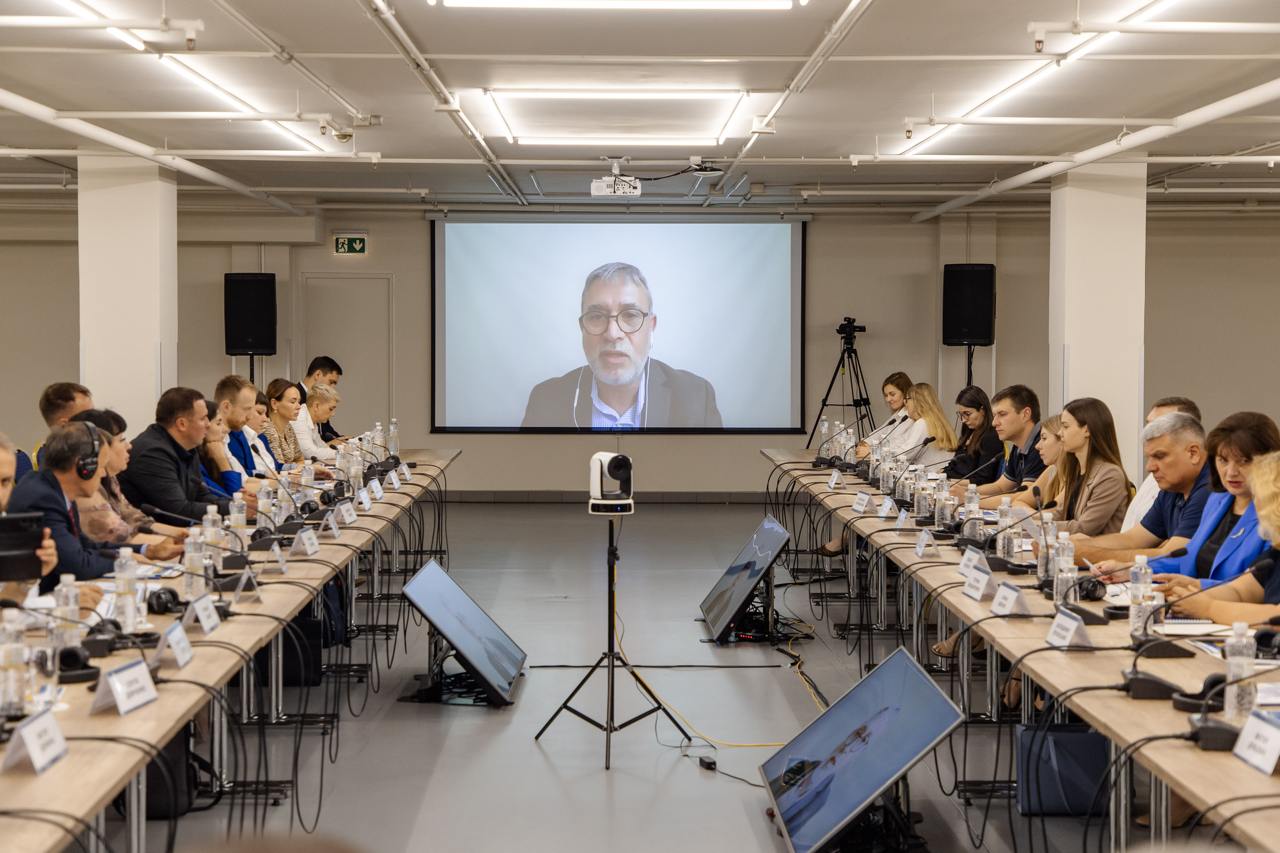
- Moreover, EU Pravo-Justice Project also supported a roundtable discussion on the attractiveness of judicial career.
At the event, representatives of the European Network for Councils of the Judiciary presented the Report of the Thematic Dialogue Group on the Attractiveness of Judicial Career translated into Ukrainian with the support of EU Project Pravo-Justice.
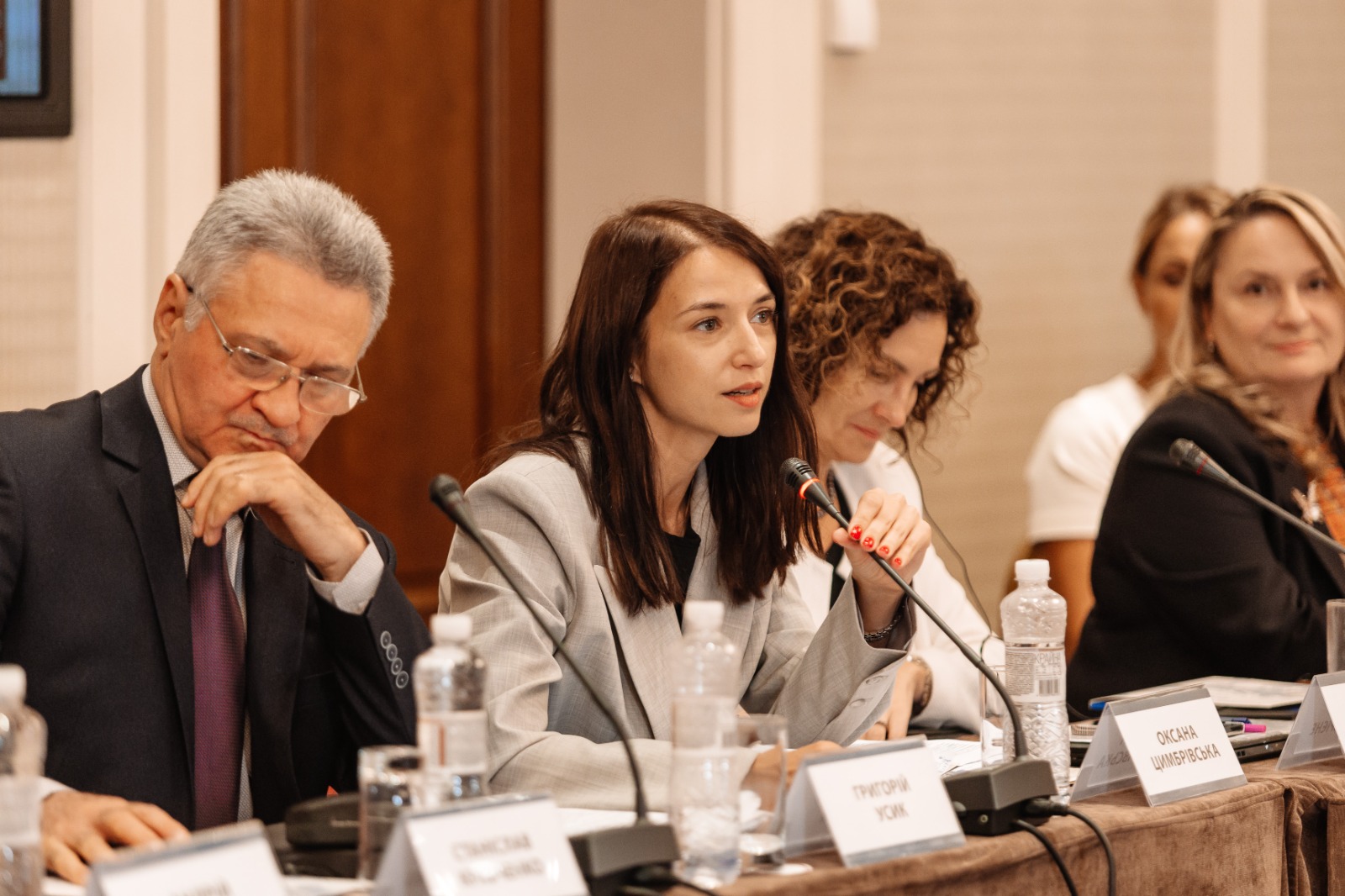
- EU Project Pravo-Justice supported a series of online trainings on cybersecurity for the members of the High Council of Justice and its Secretariat staff. The course was designed and delivered by Anastasiia Apetyk, national expert of the Project, lawyer, and expert on information rights and digital security.
“The online training participants had an opportunity to learn about widespread cyber security threats and the best methods to counter them. Understanding these risks and implementing adequate security measures, people working in the justice sector can protect themselves and the judiciary from cyberattacks while maintaining the integrity and confidentiality of sensitive information,” said Anastasiia Apetyk.
- On 25 September, an updated training course on the Rule of Law and Judicial Ethics organised by EU Project Pravo-Justice together with the National School of Judges of Ukraine started. It addresses judges’ current challenges and needs for a deeper understanding of various aspects of the rule of law.
Oksana Tsymbrivska, Team Leader of EU Project Pravo-Justice, believes the training course will be an important step in strengthening Ukraine’s judiciary. After all, understanding the principle of the rule of law and its practical application is extremely important in the context of the ongoing transformation when Ukraine is actively heading towards EU membership.
Prosecutorial reform and accountability
- Conference “Sexual Violence in the Digital Space: Challenges in Detection and Response” took place in Lviv.
Oleksandra Dermanska, Key Expert on Public Prosecution Office Reform at EU Project Pravo-Justice, focused her presentation on the importance of training on and raising awareness of combating sexual violence in cyberspace.
“We believe it is necessary to train not only law enforcement officers but also, for example, local business staff who may witness crimes. After all, these people often have such information but don’t know what to do about it or where to report it,” the expert said.
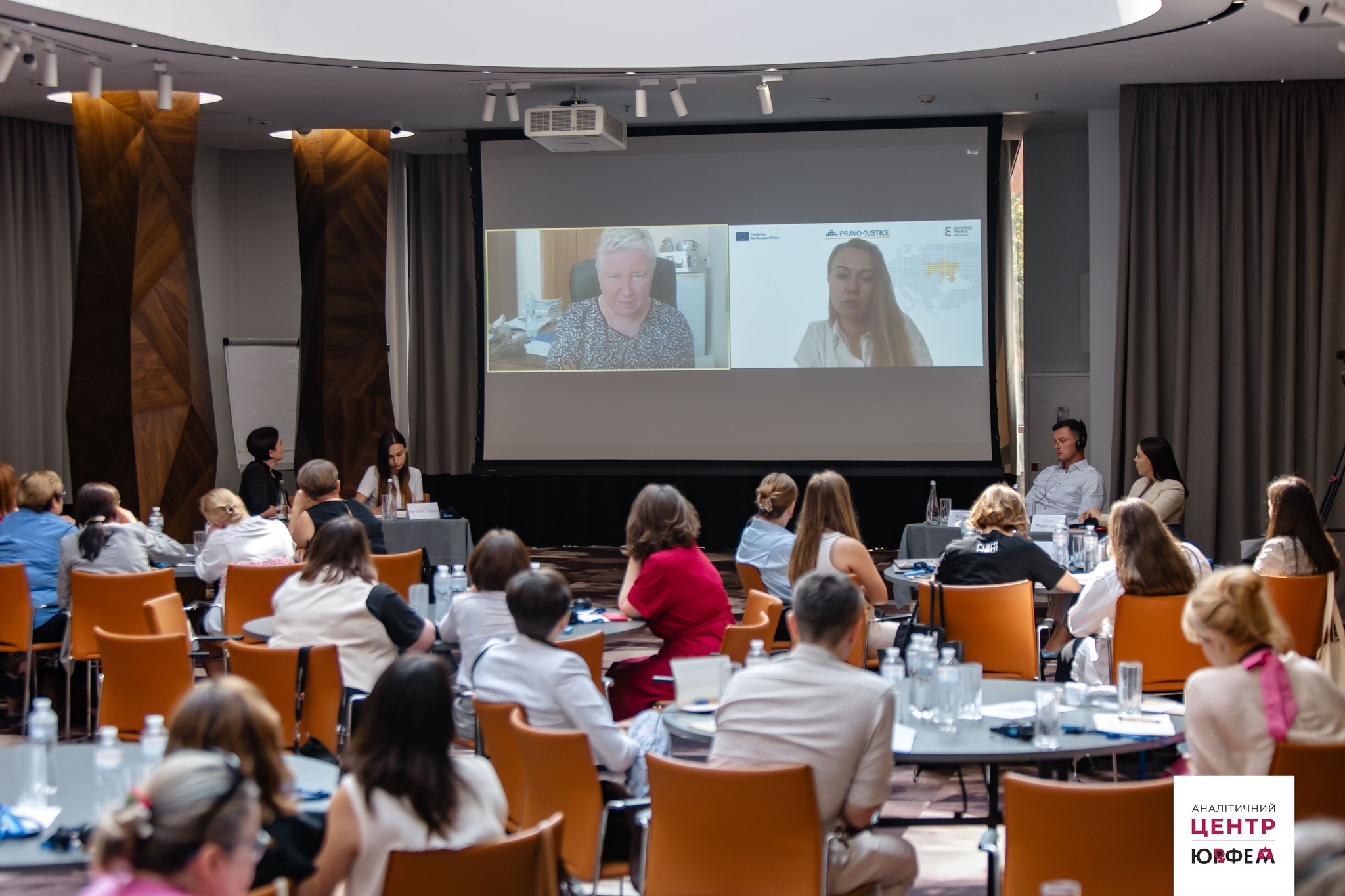
- EU Project Pravo-Justice and the National School of Judges of Ukraine conducted a series of trainings for judges “Criminal Proceedings in International Courts and Tribunals”.
On 27 August, a training for judges from Dnipro, Kirovohrad, Poltava and Zaporizhzhia regions was held in Dnipro; on 29 August, a training for judges from Odesa, Kherson and Mykolaiv regions was held in Odesa. The trainings aimed to raise judges’ awareness of the legal aspects of international criminal proceedings and their integration into national judicial systems.
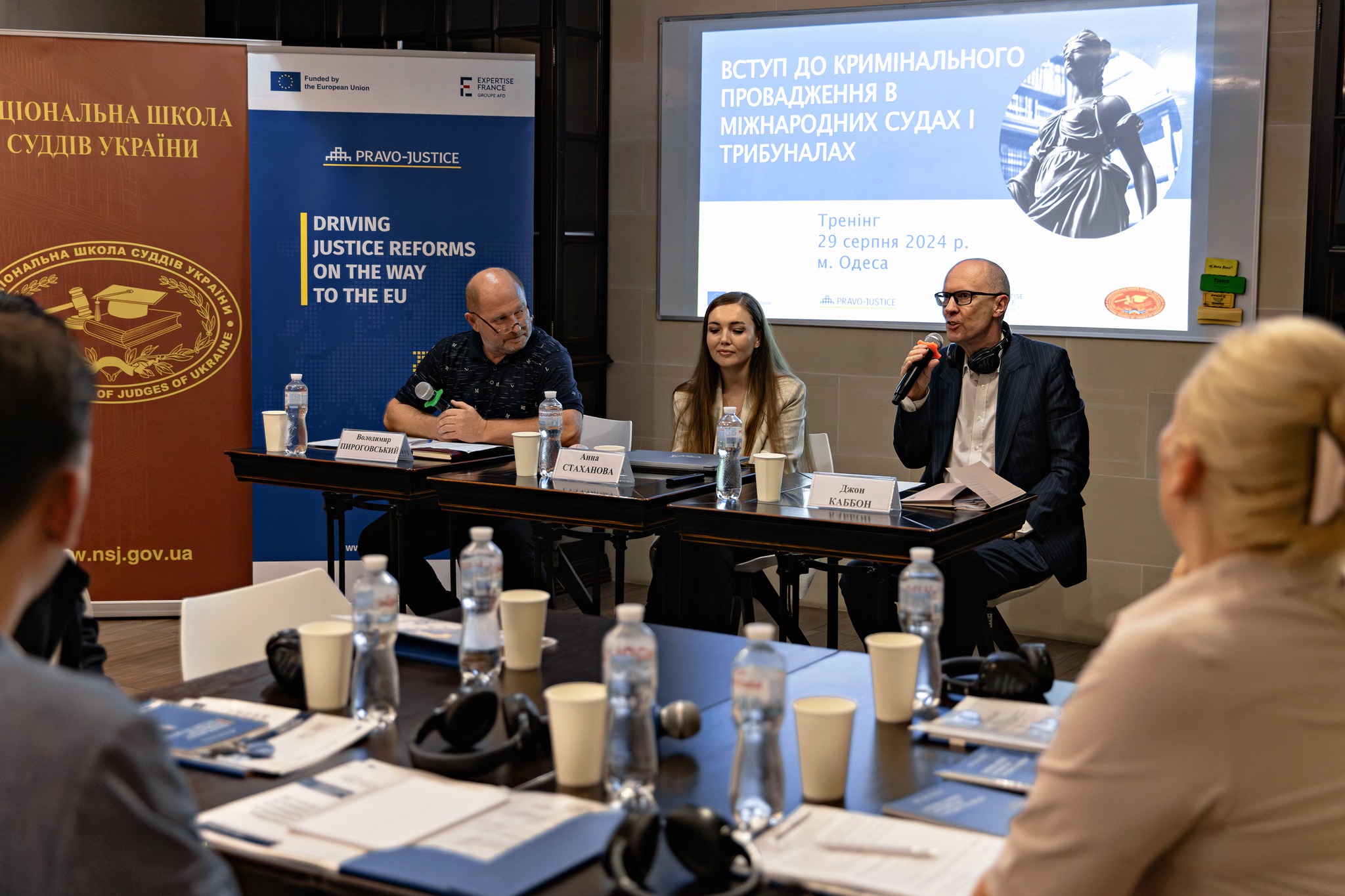
- Also, a two-day workshop for the Interagency Working Group of Military Experts under the Office of the Prosecutor General dedicated to improving the skills for investigating international crimes took place.
The workshop participants explored how to properly collect and analyse chemical and explosives-related and technical evidence used for criminal analysis in war crime cases and the legal responsibility of commanders and political leaders.
“Military analytics plays a key role in building criminal cases. It not only contributes to a deeper understanding of the context and details of war crimes, but also supports effective collection and use of evidence, which is critical to achieving justice,” said Anna Stakhanova, Key Expert on Accountability for International Crimes at EU Project Pravo-Justice.
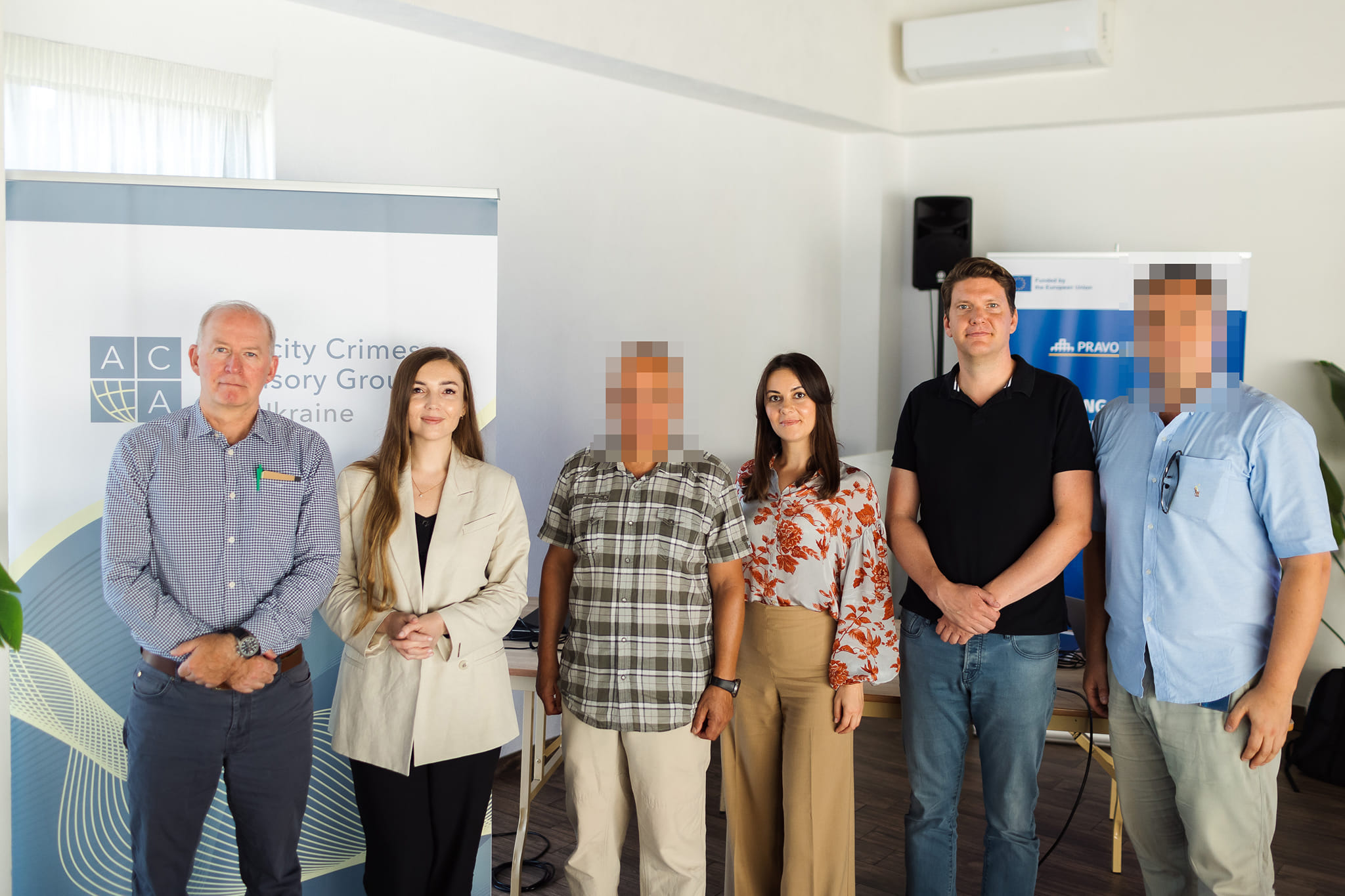
- International conference “United for Justice. Accountability for the Attacks against Civilian Objects” took place in Kyiv.
At the conference, the organisers paid special attention to the destruction of healthcare infrastructure. Since the beginning of the full-scale invasion, more than 1,400 healthcare facilities, including the Okhmatdyt children’s hospital, have been attacked. Therefore, during the discussion moderated by Jonathan Ratel, barrister and international prosecutor, expert at EU Project Pravo-Justice, these attacks were discussed as potential crimes against humanity because they are widespread and systematic.
Conference participants recognised that it is necessary to continue building solid cases to hold perpetrators of these international crimes accountable. They also committed to strengthening legal, political and awareness-raising strategies to respond to these violations.

- EU Project Pravo-Justice and the Coordination Centre for Legal Aid Provision conducted a series of specialised trainings for defence lawyers from eastern and southern regions of Ukraine on the topic “Defence in International Law and Ukrainian War Crimes Trials”.
The training sessions held on 12-14 and 16-18 September aimed to provide defence lawyers with the knowledge and skills to effectively represent interests in war crimes trials. Participants had the opportunity to learn about the peculiarities of International Humanitarian Law and International Criminal Law, discuss challenges in working with witnesses and victims, and examine legal ethics.

Penitentiary reform
- On 5 September, at the initiative and with expert support from EU Project Pravo-Justice, the HR School was launched for the staff of the HR departments of the Probation Centre headquarters and regional offices.
The training course is conducted by Serhii Synohub, national expert of EU Project Pravo-Justice, and David Knott, international expert of EU Project Pravo-Justice.
- Also, there was a workshop dedicated to the work of psychologists in motivating prisoners to change. The event was organised as part of the forum “Effective Work of Psychologists: An Important Element of Penitentiary System Reform”.
According to Olena Kochura, the knowledge gained at the two-day training will help psychologists work with prisoners more efficiently and effectively.
“The new knowledge and techniques will help psychologists to be more thorough in selecting participants for rehabilitation programmes and will allow them to properly plan individual interventions for a convict. This individual plan will be used throughout the entire sentence,” the expert added.
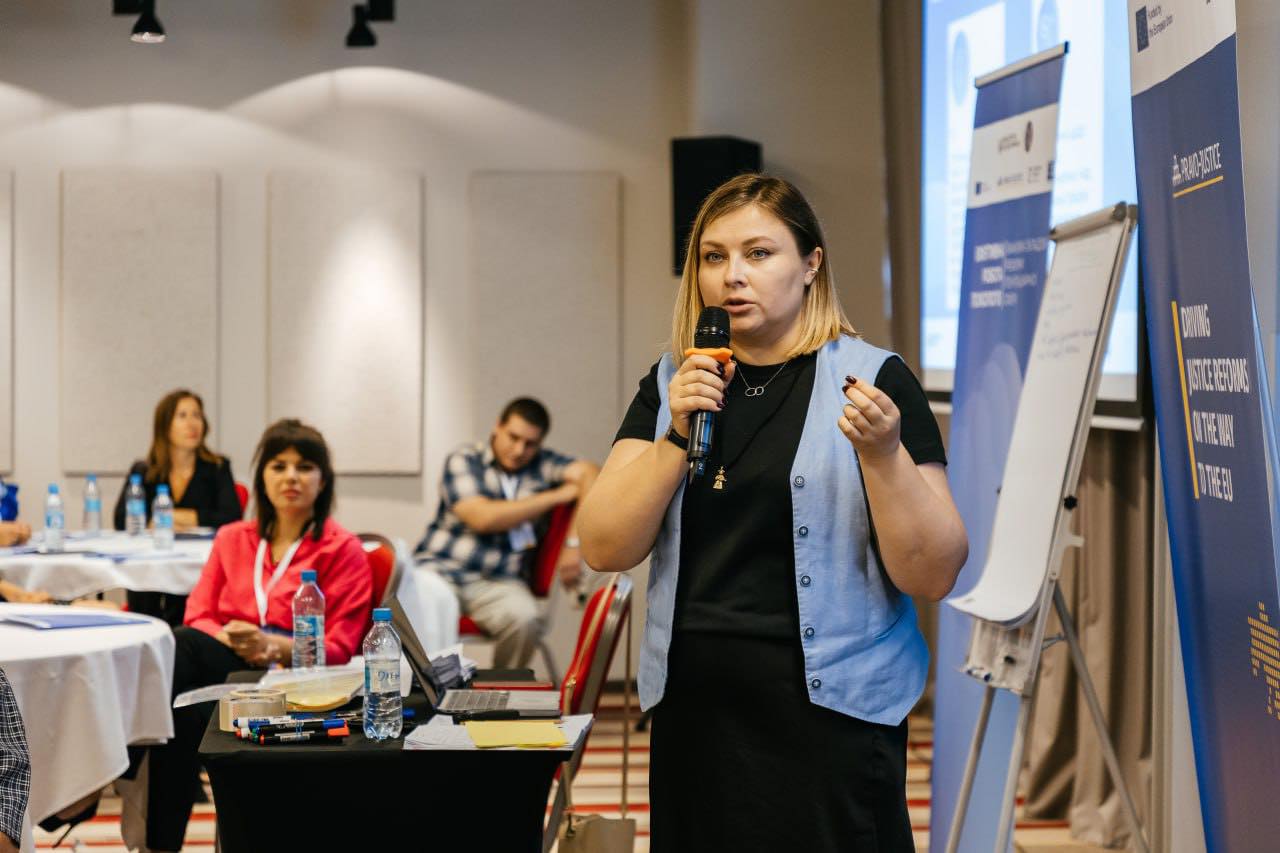
Enforcement of court decisions and property rights protection
- On 13 September, EU Project Pravo-Justice together with the Association of Private Enforcement Officers of Ukraine and the Council of Private Enforcement Officers of Odesa Region held the VII Annual International Conference “Pro Enforcement”.
Iryna Zharonkina, Enforcement and Protection of Property Rights Component Lead of EU Project Pravo-Justice, delivered a presentation at the event. She emphasised that enforcement of court decisions is an integral part of the negotiation process between Ukraine and the EU in the context of the European integration.
- On 19 September, training for administrative judges “Judicial Control over the Exercise of Discretionary Powers by Administrative Authorities” was held. The event was organised by the National School of Judges together with EU Project Pravo-Justice.
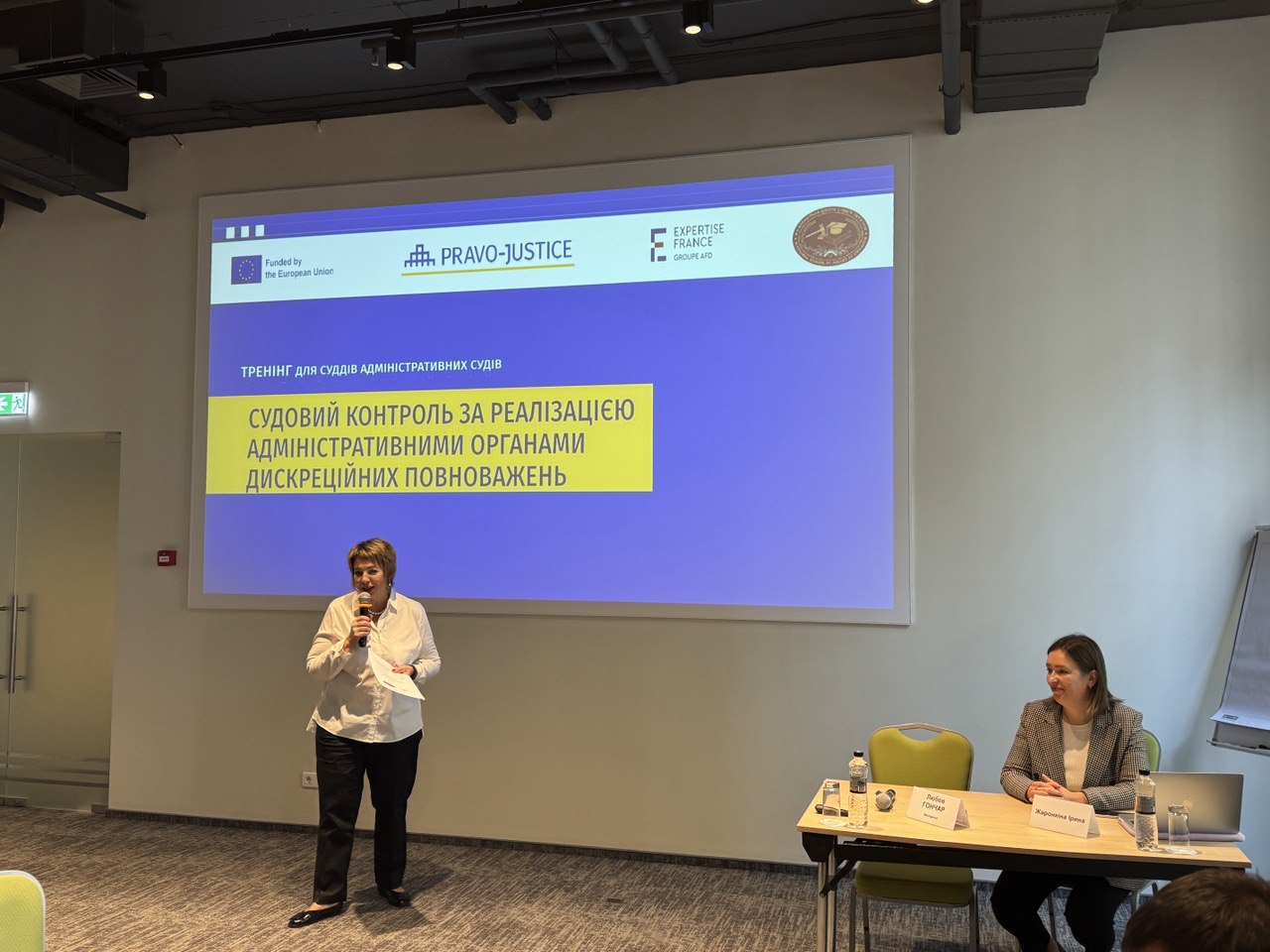
According to Iryna Zharonkina, Enforcement and Protection of Property Rights Component Lead of EU Project Pravo-Justice, the Project pays much attention to the issue of judicial control over the exercise of discretion by administrative authorities. In particular, the Project experts, including members of the Association of European Administrative Judges, conducted a thorough study “Discretion of Administrative Bodies and Judicial Control.”